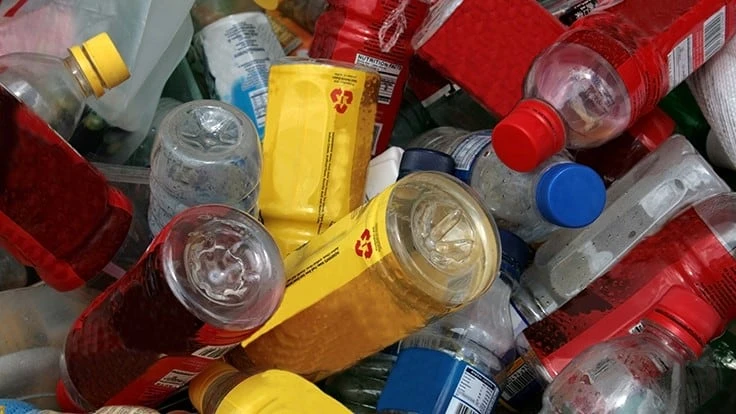
© Jonas Marcos San Luis | Dreamstime.com
Republic Services Inc., Phoenix, has committed to publishing a report on how the company can improve efforts to increase plastics recovery and recycling to address environmental problems caused by plastic pollution, according to a news release from Berkeley, California-based nonprofit As You Sow.
Republic is the second major U.S. solid waste and recycling collection company to agree to publish a report. As You Sow reached a similar agreement with Houston-based Waste Management Inc. in February.
China’s 2018 ban on plastic scrap imports means that in some areas of the U.S. markets for collected plastic scrap are lacking. To help address this situation, As You Sow says it filed a shareholder proposal with Republic Services.
The nonprofit says Republic has agreed to provide a report that could help identify basic gaps in plastic recycling infrastructure in the U.S. The report will illustrate the company’s material flows of commonly collected and recycled plastics, categories of current end-market uses for these materials and gaps in recycling infrastructure and markets. Republic will identify actions it believes could help address the gaps detailed in the report, including possible company actions and broader recommendations.
Another factor in low recycling rates can be inefficient or outdated material recovery facilities (MRFs), As You Sow says, noting that outdated facilities can result in lower capture rates for recyclables. Republic agreed to provide an assessment of its MRF capabilities and the level of automation and advanced technology and to discuss how these technologies translate into throughput efficiency.
As You Sow says it has withdrawn its shareholder proposal in response to these commitments from Republic.
Conrad MacKerron, senior vice president of As You Sow, says, “We appreciate Republic Services’ willingness to provide this report, which will provide deeper insight into plastic material flows once they leave consumers’ hands. We hope it can be a valuable resource to stakeholders working to increase recycling rates.”
The nonprofit says it believes more organized, concerted action is needed by upstream packaging manufacturers, consumer brands, recyclers, processors, regulators and interest groups to dramatically increase levels of recycling to capture the embedded value of these materials and to provide feedstock for the postconsumer resin (PCR) many brands have committed to use in their packaging.
Latest from Recycling Today
- Lautenbach Recycling names business development manager
- Sebright Products partners with German waste management equipment company
- WasteExpo transitions to biennial format for enhanced experiences
- Study highlights progress, challenges in meeting PCR goals for packaging
- Washington legislature passes EPR bill
- PureCycle makes progress on use of PureFive resin in film trials
- New copper alloy achieves unprecedented high-temperature performance
- Gränges boosts profits and sales volume in Q1 2025







